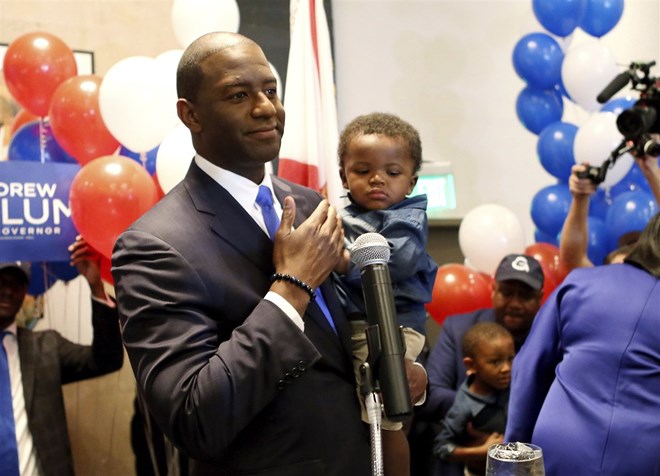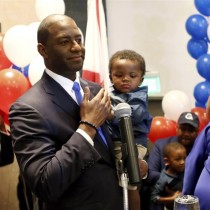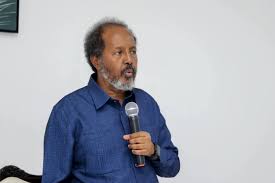
Black, progressive, insurgent: Is this the future of the Democratic Party?

ThursdaySeptember 6 2018
Alex Seitz-Wald

White progressive insurgents, meanwhile, have had less luck this year, sometimes bumping up against a ceiling that white liberals alone can't surpass.
Maurice Mitchell, a Black Lives Matter activist who recently took the helm of the progressive Working Families Party, sees the emergence of what he calls "the Obama coalition, plus."
Barack Obama beat Clinton 2008 by combining the strengths of people of color and younger white progressives, but he governed from the center-left. He watched the rise of social movements like Occupy Wall Street, Black Lives Matters and the Women's March, not to mention political movements like Sanders', all of which have added intensity and urgency to the left.
"The electoralizition of these people will mean they'll govern very differently from how Obama did," said Mitchell, whose Working Families Party backed Sanders over Clinton, specifically to help it build a more multiracial coalition.
The problem with the Obama coalition, electorally, was that it was nearly impossible to replicate.
"Everybody was trying to recreate the Obama coalition and couldn't," said Karine Jean-Pierre, a alumna of both Obama campaigns and the White House who is now a senior adviser to MoveOn.org. "Only if he was on the ticket was that coalition enthusiastic and ready to go."
That's especially been true for people of color.
At Aretha Franklin's funeral last Friday, the Rev. Jesse Jackson lamented the long lines he saw to honor the singer in death, but not at polling places. "If you leave here today and don't register to vote, you're dishonoring Aretha," he said.
With perhaps the exception of Obama, black political leaders have tended to align with the center of the Democratic Party, noted Melanye Price, who teaches Africana studies and political science at Rutgers University and wrote a book about Obama and race.
That's how Clinton, who nearly consolidated African-American vote in 2016, beat back Sanders and his army of disproportionately younger, whiter revolutionaries.
In Massachusetts, the Congressional Black Caucus backed Rep. Mike Capuano, D-Mass., who is white, over Pressley. And the caucus also pushed to preserve the power of superdelegates in the Democratic presidential nominating process, even as younger black delegates to the Democratic National Committee fought to end them (the DNC voted last month to strip their power).
But that's changing, according to Price, thanks to a new generation of black leaders who stepped in the power vacuum created when traditional civil rights organizations, like the NAACP, decided to work inside the system in the Obama era.
"It's clear that the era of centrist black politicians is on the wane. The time of black progressives is in ascent," Price wrote in an op-ed for The New York Times on Wednesday. "The old political orthodoxy that has allowed black centrist Democrats to dominate black politics is being dethroned."
Still, this year's primaries also show that people of color alone are not enough to win on their own.
While whites make up only 42 percent of residents in Pressley’s district, the electorate has remained stubbornly white: 55 percent of registered voters, according to WBUR. And precinct-level data shows Pressley was likely dependent on white progressives voters in places with few minorities, like Sommerville.
Alexandria Ocasio-Cortez, who beat a powerful white House incumbent in New York City earlier this year, owes her success in no small part to gentrifiers.
Abrams is hoping to tap the hundreds of thousands of black Georgians who don't typically vote — but she makes no secret about also needing college-educated white suburbanites and younger voters.
That will be especially true, too, for Gillum in Florida, where whites make up 77 percent of the state's population and blacks 17 percent.
A new Quinnipiac Poll showed Gillum narrowly leading his Republican opponent, Rep. Ron DeSantis. Unsurprisingly, it showed him cleaning up with black voters, but he was weak among Latinos. So how was he winning overall then?
As demographer Ruy Teixeira noted, it's because the poll showed him overperforming among whites compared to Clinton.
That's unexpected, and could still be a polling error, for a candidate who is running on Medicare for All, legalizing marijuana and sweeping criminal justice reform in a state where Democrats have tended to nominate moderate white candidates for fear of alienating white voters.
If Gillum wins the country's biggest swings state on that platform, Jean-Pierre predicted, it will have lasting influence.
"Whatever happens in Florida this year is going to set the tone for 2020," she said.



 0
0 













Black, progressive, insurgent: Is this the future of the Democratic Party?
African-Americans running on the left have notched a string of victories this year. Here's why. WASHINGTON — Bernie Sanders couldn't carry JFK's old congressional district in Massachusetts when he ran against Hillary Clinton i